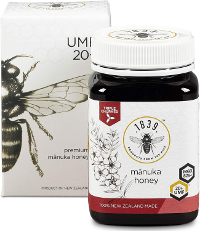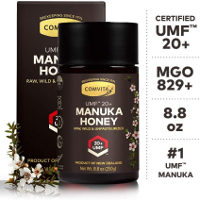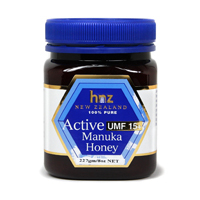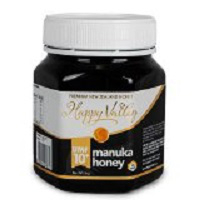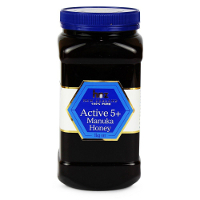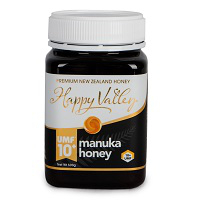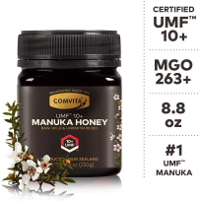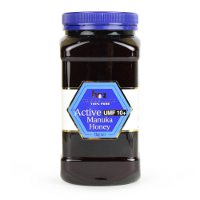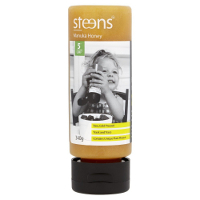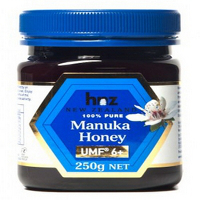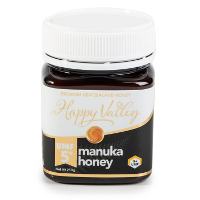Description
This 1839 Honey UMF 20+ Manuka Honey is indeed a rare and prized manuka honey. Graded at UMF 20+, this is one of the highest possible UMF ratings and for this reason it is rare (as well as expensive).
Manuka honey has become known as the honey with the special antibacterial properties and a honey with this level of UMF rating and MGO is one that definitely packs a punch and is also one to help boost your immunity.
A Manuka honey that is this expensive needs some assurances that it is the real thing. To this end, 1839 Honey have pioneered their trust codes.
By scanning the barcode on the jar of honey, it will tell you whether the jar is genuine, where the hive is located together with more details on the test results for the batch.
The testing process has become the industry standard to protect consumers. The testing regime has been the result of long-term research work carried out by the UMF Honey Association.
The tests look for the presence of naturally occurring chemicals in the honey that must be there in order for the honey to be considered genuine Manuka honey, and also at what levels they are present.
In addition, there is a test for manuka pollen to determine whether the Manuka honey is monofloral (as this UMF 20+ is) or multifloral.
For those wanting to know more about what these tests, the UMF Honey Association has a comprehensive website.
But why 1839? This is a truly significant date in the history of honey and Manuka honey in particular because this is when a woman named Mary Bumby arrived in New Zealand, bringing with her two beehives.
She came to look after her brother, who was a missionary, and introduced the honey bee to New Zealand. And the rest as they say is history.
1839 takes a creative approach to business and also strives to create an inclusive company that looks after its employees and beekeepers alike.
This 1839 UMF 20+ Manuka Honey is triple churned – a secret process that makes the honey as smooth as silk but without adding anything to it or heat treating it. A true wonder of nature.
(Infants below the age of twelve months are advised against eating any variety of honey.)

